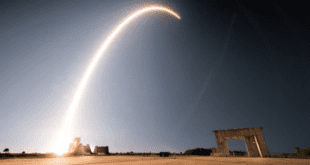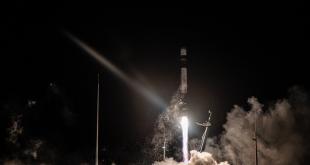
TriSept Corporation, a leading provider of launch integration and mission management services, has signed comprehensive launch service agreements with Millennium Space Systems and Rocket Lab to support a unique mission aimed at helping to solve the ever-increasing low-Earth orbital debris challenge.
Millennium Space Systems is designing and building, and will be operating, the Millennium RAPTOR satellites and working with TriSept to manage the mission for the DRAGRACER initiative.
This rideshare mission will launch aboard the Rocket Lab Electron launch vehicle in early 2020. Once in space, the 25kg small satellite will split into two payloads to demonstrate how a new deorbit technology, the Terminator Tape developed by Tethers Unlimited Inc., can help reduce orbital debris.
“The DRAGRACER mission is all about providing an affordable, effective and scalable solution to the orbital debris challenge facing the LEO small satellite market and the global space ,” said Mike Scardera, vice president of Advanced Concepts, Millennium Space Systems.
“It is the first in a series of critical project missions we expect to launch with TriSept. By working with such a seasoned support crew, we can focus on building the best flight solutions for today’s challenges in space.”
One of the test satellites will feature the deployable Terminator Tape, designed to add significant drag to the spacecraft and allow researchers to closely study how the device can dramatically accelerate reentry and the removal of orbital debris once a spacecraft reaches end of life.
An onboard timer will trigger the tether deployment on the experimental satellite a few days into the mission, with reentry estimates in the two- to four-week range for the spacecraft with the Terminator Tape, and eight to 12 months without the enhanced drag device.
TriSept will provide full spacecraft integration with the launch vehicle and procurement of dispenser device hardware used to release the small satellites into space. TriSept is also leading collaborative efforts with Millennium Space Systems and Rocket Lab to secure regulatory approvals from U.S. and New Zealand space agencies.
“The collaborative relationship between TriSept, Millennium Space Systems and Rocket Lab is driving new innovative and meaningful missions in space, such as the DRAGRACER initiative to exploring creative solutions to the orbital space debris challenge,” said Rob Spicer, TriSept President and CEO.
“We are honored that Millennium Space Systems has entrusted TriSept with the integration and management of this important mission aboard our second launch with the proven Rocket Lab Electron. DRAGRACER could ultimately help shape how the industry handles orbital debris for years to come.”
“This rideshare mission slated for launch aboard our Rocket Lab Electron is very significant as Millennium Space Systems, supported by TriSept’s seasoned launch integration team, tackles one of the biggest challenges facing our industry today,” said Lars Hoffman, senior vice president of Global Launch Services, Rocket Lab.
“We look forward to working closely with these two space industry innovators in preparation for an exciting milestone launch of the DRAGRACER orbital debris initiative.”





